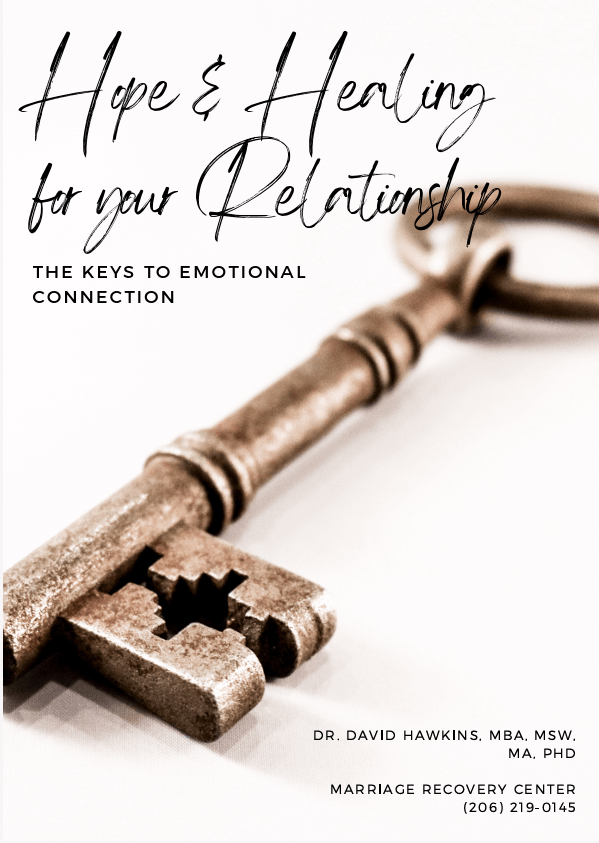There is one question I’m asked more often than any other: Will he ever really change?
This is such a difficult question and yet so critical to your well-being. You are possibly desperate to know if your man can and will change. While there are no definitive ways to know what you can expect from the future, there are “mile markers” to know if he is on the right track. There are attitudes that co-exist with positive changes and likewise attitudes that co-exist with men who are rebellious and stuck.
Consider two different stories of two different men—one on a path of change and progress, another on a path of being resistant to change. Perhaps as you consider these two lives you will recognize your own story in them. Let’s call our first man Jake and the second one Jerry. Jake has a history of being short-tempered, thin-skinned and egotistical. He decided long ago that “the man is the head of the home,” and he has ruled his wife and three children fiercely. His wife tolerated his emotional abuse for many years, though has separated from him several times in an effort to send a message that she would not tolerate his immature behavior.
“Each time I would leave,” she said, “he would get better for a short time. I would always go back and his behavior would revert back to the way it was before, maybe even worse. I don’t know what else to do,” she shared with me.
“What has Jake done in regards to taking ownership of his abusive behavior?” I asked.
“Not much,” she said. “He always points out that ‘it’s a two-way street.’ He says I’m just as much to blame as he is and he is not going to take all the responsibility for our problems. He resents the times I’ve left and I’m afraid to leave again. Even if I own my part, he never fully owns how damaging his behavior has been. He resents me labeling his actions as abusive and refuses any kind of therapy.” Jerry’s history is similar to Jake’s, but his wife’s recent separation seems to have really shaken him. She, too has separated several times for short periods. This time, however, she is staying away until Jake undergoes an evaluation “by someone who knows about emotional abuse.”
“She means business,” Jerry said to me. “At first I really resented her for leaving, but deep down I know she is right. She is doing herself and me a favor. I’ve been mean to her am just beginning to understand the depth of her pain. She is not the same woman I married twenty-years ago and the changes aren’t for the better. I’ve watched her become emotionally drained and physically sick and I’m to blame. I have got to get help. She deserves better.”
“What have you done to begin to change?” I asked.
“I’m reading some books on emotional abuse, going to Celebrate Recovery, meeting with my pastor and now meeting with you,” he said. “I don’t want to be like this. Whether she comes back to me or not, I’ve got to change. I’m going to stay involved in your men’s group too. I don’t want to slip backwards. There’s too much at stake.”
Jerry became tearful as he shared about the loss of his wife and the shame he felt over his actions. Clearly he missed her, but also seemed to be experiencing what Scripture refers to as “Godly sorrow.” He was moving from external motivation for changing to change motivated by his own conscience and God working in him.
What are the obvious differences between Jake and Jerry and what can we learn from them?
- First, we must be ready to change.Sadly, we do not change until we have “the breakdown that leads to the breakthrough.” Jake has not yet experienced a breakdown. His life is still working, marginally. He stubbornly holds onto old attitudes and ways of living.Jerry can no longer deny his actions. With his wife gone and no clear time for her return, he lives face to face with his failures and has chosen to do something about them. His heart is soft and sensitive as he seeks information and help;
- We must feel remorse over our actions.Jake is clearly angry about his wife’s dissatisfaction. He blame-shifts and deftly avoids taking responsibility. He seems to feel no remorse and is actually angry at his wife.Jerry, on the other hand, seems to feel deep shame. While certainly wounded over his wife leaving, he recognizes his part in her emotional and physical distress. He seeks help from many different sources and is open to change;
- We must take full responsibility for wrongful behavior.Jake avoids taking any responsibility for his actions. Deeply entrenched in denial, he will not likely change. His wife can expect only more of the same from him.Jerry, on the other hand, is beginning to see his wrongful actions. He is taking a full inventory of his actions and the ways he has harmed her. If he ‘stays the course’ his wife can expect change and make choices based on his changes;
- We must set out a comprehensive course for healing.Jake is doing little to change and actually clings to his old life. Blaming his wife, he will likely do little to participate in a change process.Jerry, on the other hand, seeks out all the help he can find and will likely experience emotional and spiritual growth and healing. Allowing God to work in him, he can change and grow;
- We must have an accountability plan for change.Again, Jake is doing nothing to be accountable for change and change will likely not happen. His wife will remain in danger and she will continue to be victimized.Jerry, on the other hand, has set up a circle of accountability partners who will assist him in changing. He and his wife have the opportunity of experiencing the growth and safety that comes from change;
- We must accept the consequences for our sin.Knowing that there are consequences for our sins is a sign of emotional and spiritual maturity. Jake resents the consequences he has experienced while Jerry accepts the ramifications of his actions. Jake can be expected to repeat his troubling behavior while Jerry is likely to allow God to speak to his heart and submit to the Holy Spirit’s regenerative work in his life.








